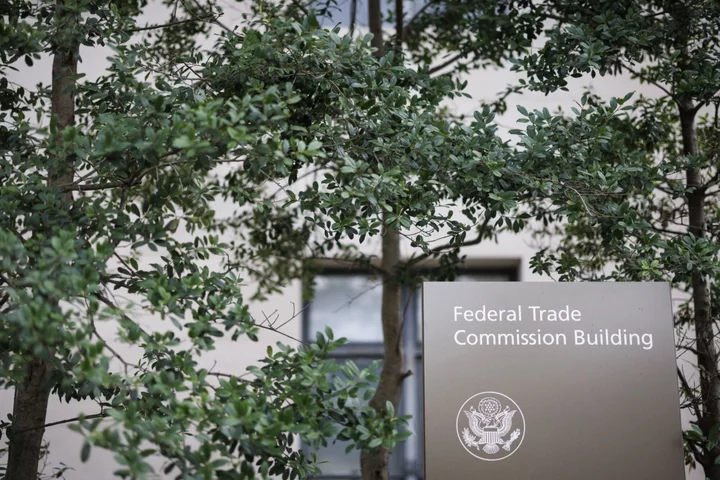The US antitrust agencies are requiring firms to turn over much more information about their transactions than before in an overhaul to merger rules that could delay deals by months.
The revamp of the so-called Hart-Scott-Rodino filing process, a move by the Justice Department and the Federal Trade Commission to crack down on illegal mergers, could add as much as two to three months to the timetable for deals, according to one estimate.
The agencies say the overhaul, the first in 45 years, will allow them to “more effectively and efficiently screen transactions” for antitrust concerns.
Read the new merger-filing rules here.
The proposed changes, released Tuesday for publication in the Federal Register later this week, require details about acquisitions during the previous 10 years, information on company officers, directors and board observers, in addition to data on the firms’ workforce.
The agencies will take public comments on the proposed changes for 60 days. The new rules won’t go into effect until after the FTC and DOJ publish a final version, which is expected to take several months to complete.
The new filings also would require disclosure of subsidies such as grants and loans by certain foreign governments including North Korea, China, Russia, and Iran. Congress passed a law in December requiring the agencies to begin collecting information on foreign government subsidies amid concerns that countries like China could distort competition by offering financial support to some firms.
The FTC estimated the new requirements laid out in the 126-page document would add more than 100 hours to the time it takes for firms to prepare their filings, which they said currently takes about 37 hours to complete.
However, Bloomberg Intelligence senior analyst Jennifer Rie said companies will likely need much longer than that to compile all the information and analysis the agencies will now be seeking. Today, a law firm can complete paperwork for companies seeking antitrust approval to merge in seven to 10 days, said Rie. The proposed changes could add months to that process, bringing the US merger filing regime more in line with Europe’s, she said.
“We’re looking at changing something from a 10-day process to a two-to-three month process,” said Rie, who practiced antitrust law for 10 years before joining Bloomberg Intelligence.
Antitrust advocates praised the changes as a much-needed update that will help enforcers better investigate deals.
“The merger and acquisition landscape has shifted dramatically in the past 45 years, and the HSR filing process — a key part of merger review — should reflect that,” said Krista Brown of the antimonopoly group American Economic Liberties Project.
Under US law, deals valued at more than $111.4 million must notify the FTC and DOJ and wait 30 days before closing. The vast majority of mergers raise no concerns and are finalized after the initial waiting period expires. But the agencies can ask for additional information, triggering an in-depth probe of the deal.
Of the 3,520 transactions reported in fiscal 2021, the last year for which the agencies have published data, the FTC and DOJ asked for more information in 65 of them, or about 1.9%.
Today’s filings mostly require one- and two-word responses, said Bloomberg’s Rie, whereas the new proposal would ask companies to provide narrative summaries of the transaction and outline business areas where the firms compete.
“It creates a lot more likelihood that deals aren’t going to fly under the radar,” she said. “You are laying out competitive overlaps for them.”
An FTC official said the revamp is intended to help preserve agency resources and cut down on the need to ask for more documents or information during the first 30 days. The US agencies consulted with other jurisdictions, including the European Union, the UK and Canada, to see what information they require about deals up front, said the person, who wasn’t authorized to speak on the record.
The US agencies don’t believe that the new form will change the number of deals that draw in-depth probes, said the official. But they anticipate the beefed-up form may lead to fewer so-called pull-and-refiles, the person said, referring to a commonly used technique where companies withdraw their paperwork and submit a second time to give the FTC or DOJ an additional 30 days to decide whether to pursue a longer review.
Earlier this year, the agencies moved to a graduated fee system with the smallest deals paying $30,000 for their merger reviews while the largest ones must pay $2.25 million.
Here are some highlights from the new requirements:
Deal documents:
- Draft agreement or term sheet on deal (not just preliminary agreement)
- Draft versions of all deal documents (not just final versions)
- Documents created by or for deal team lead (not just officers and directors)
- Verbatim translations of all foreign language documents (not just summaries)
Company information:
- Acquisitions within the past 10 years
- Details on all officers, directors and board observers
- Creditors and entities that hold non-voting securities, options, or warrants totaling 10% or more
Transaction details:
- Identify potential horizontal overlaps, current or planned
- Narrative on strategic rationale for the transaction and diagram of deal structure
- Timeline and conditions for closing
- Labor market analysis including workforce categories, geographic information, details on labor or workplace safety violations
- Foreign jurisdictions reviewing deal
(Updates with reaction from antitrust advocates from 11th paragraph. A previous version of the story corrected the antitrust filing threshold.)

